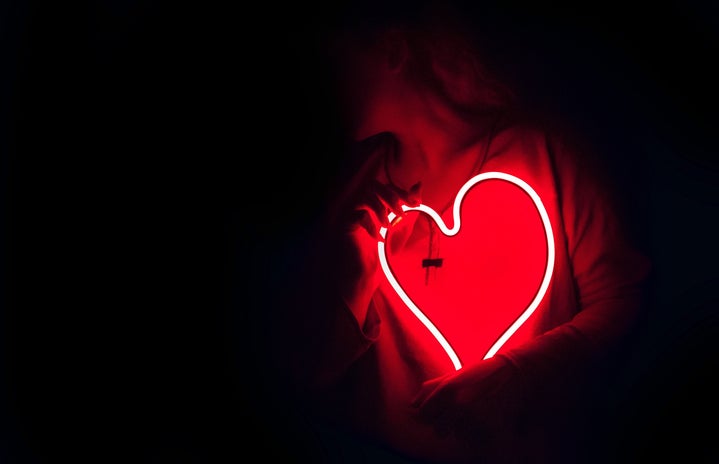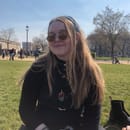As October comes to a close, it’s important to discuss Domestic/Dating Violence Awareness Month aka DVAM. In particular, and this is a conversation I think is had less often, how does dating/domestic violence affect college students. DVAM was first observed in October of 1981 as a “Day of Unity” to unite activists across the nation in their efforts to end domestic violence. Throughout the month community and advocacy organizations have worked with people and organizations to share information on the signs of abuse, how to stop it, how to support survivors, and to provide additional information to policymakers.
So how does one recognize the signs of an abusive relationship? DV can come in many different forms. DV can be in the forms of emotional, verbal, financial, physical, sexual, psychological, digital, and/or mental abuse as well as stalking. There are many ways to see the signs of abuse, these can include extreme jealousy, demeaning language, isolation from friends and family, controlling someone’s behavior, gaslighting, controlling finances, pressuring someone to have sex or do a sexual act they’re uncomfortable with, pressuring someone to use drugs or alcohol, physical violence, intimidation with words or weapons, threatening someone, destroying belongings, or shaming someone particularly in front of others. It can be difficult in a new relationship to see these signs or know how to recognize them so here are some questions to ask yourself when you get into a new relationship. Does your partner make you feel bad about yourself? Does your partner try to control your life? Is your partner involved in heavy drinking to drug use (research has linked binge drinking and heavy drug use to increased violence)? Do I feel better or worse about myself when I’m in this relationship?

In addition, domestic violence exists in all different types of relationships. It can be in families, friendships, dormmates, housemates, classmates, romantic partners, etc. Furthermore, this is not only an issue that affects cis-gender woman. While one in four women experience intimate partner violence, one in nine men also experiences it. Furthermore, 43.8% of lesbian women and 61.1% of bisexual women have experienced rape, physical violence, and/or stalking by an intimate partner as opposed to 35% of heterosexual women and 26% of gay men and 37.3.% of bisexual men have experienced DV as opposed to 29% of heterosexual men. Lastly, transgender victims of DV are more likely to experience DV in public compared to those who do not identify as transgender. Sadly, less than 5% of LGBTQA+ survivors of DV sought orders of protection against their abuser in 2012. Overall, intimate partner violence makes up 15% of all violent crime in the United States, so it is significantly more common than most people know, and yet we don’t talk about it nearly enough.
But why is this a conversation that college students should be talking about? Oftentimes media portrays ideas of domestic violence in the context of older, heterosexual, married couples, however, domestic/dating violence is actually an issue that greatly affects teens and college-aged people as well from all types of backgrounds. In fact, 32% of college students report DV from a previous partner, and 21% report DV from a current partner. Furthermore, 60% of acquaintance rapes happen in casual or steady relationships and 12% of completed rapes, 35% of attempted rapes, and 22% of threatened rapes occur on a date. What is also important to note is that 39%-54% of DV victims remain in physically abusive relationships and only 50% of DV victims report the violence to someone else. Lastly, 51% of college males admit perpetrating one or more sexual assault incidents during college. Clearly, DV is an issue that greatly affects college students and is one that needs to be had in order to help survivors of DV have the ability to know their resources and reach out for help and to hold abusers accountable, and possibly prevent future abuse.

If you are someone who someone chooses to confide in about their DV experience, it can be difficult to know how to react, so here are some basic tips for responding to a disclosure. Always believe the survivor, don’t ask for more than they are willing to share, listen to them without interruption, never blame the survivor, reassure them of confidentiality, don’t criticize their partner as this can cause them to become defensive and many times the person still loves and cares for their partner, give priority to the safety of the survivor, listen to what the person wants to do and let them make that choice for themselves (unless they are in serious immediate danger), reach out for advice from a professional, always ask permission before touching the person, and thank them for sharing their story with you.
Lastly, if you or someone you know is experiencing any form of domestic violence there is a wide range of on and off-campus resources you or they can use to get help. These sources include the National Domestic Violence Hotline, DC Coalition Against Domestic Violence, DC Safe, trauma-informed therapy, the counseling center, OASIS, the Health Center, Title IX, Dean of Students, Student Conduct, and Kay Spiritual Center. If you are not in DC there are oftentimes local DV services in your area and you can book with OASIS to get help finding services. While DVAM may be coming to an end, the fight against domestic violence is always on-going, so please reach out to someone if you or someone you know is in need of help and remember that you are ALWAYS deserving to be in a healthy and loving relationship.
Sources: 1, 2, 3, 4, 5, 6, 7, 8, 9, 10, 11
Photos: HerCampus Media Library



